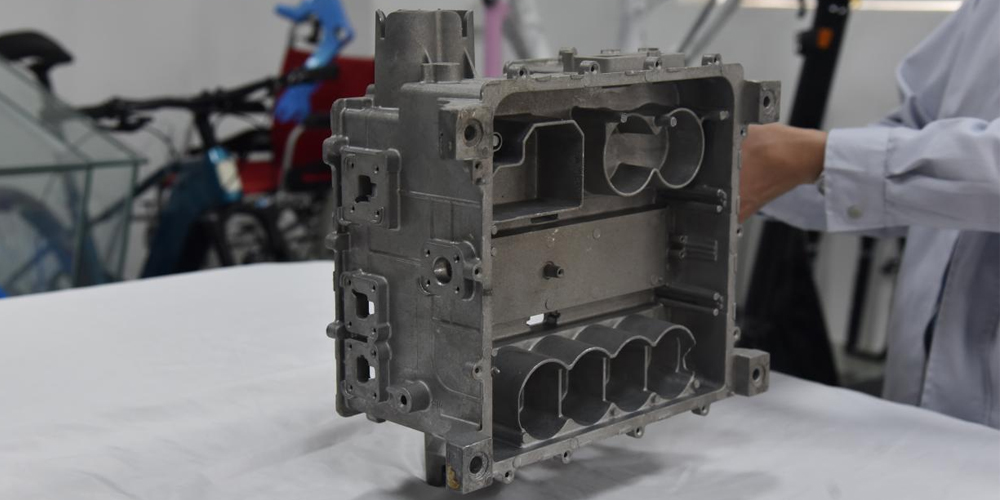In the world of engineering, constant innovation and advancements are key to staying ahead of the game. One such advancement that has revolutionized the field is the creation of aluminum prototypes. These prototypes serve as a crucial step towards perfecting designs, testing functionality, and ultimately bringing groundbreaking products to life. In this article, we will explore the significance and benefits of aluminum prototypes in engineering.
The Role of Aluminum in Prototyping:
Aluminum offers a unique set of properties that make it an ideal material for prototyping. Its lightweight nature, high strength-to-weight ratio, and exceptional corrosion resistance set it apart from other commonly used materials like steel or plastic. These characteristics allow engineers to create prototypes that closely resemble the final product, providing a better understanding of its performance and feasibility.
Streamlining the Design Process:
Gone are the days when engineers had to rely solely on computer simulations and 2D drawings to visualize their designs. With aluminum prototypes, they can now hold a physical representation of their creation, facilitating a more comprehensive evaluation. This hands-on approach enables engineers to identify potential flaws, make necessary adjustments, and optimize the design before moving forward with production.
Testing for Functionality and Safety:
One of the primary purposes of prototyping is to test a product\’s functionality and safety. Aluminum prototypes allow engineers to simulate real-life scenarios and evaluate how their designs perform under specific conditions. Whether it\’s testing a new automotive part for durability or examining an innovative medical device for efficiency, these prototypes offer a platform for rigorous testing, ensuring reliability and customer satisfaction.
Cost and Time Efficiency:
Developing a product from scratch can be a costly and time-consuming process. However, aluminum prototypes can significantly reduce both expenses and time required for development. By identifying potential design flaws early on, engineers can avoid costly modifications during the later stages of production. Additionally, aluminum is relatively inexpensive compared to other metals, making it an economical choice for prototyping.
Increased Customization and Flexibility:
Aluminum prototypes provide engineers with the freedom to experiment and explore various design options. The material\’s malleability allows for complex shapes and intricate details to be easily incorporated into the prototype. This level of customization and flexibility ensures that the final product meets the desired specifications and requirements.
Eco-Friendly Solution:
In an era where environmental sustainability is a growing concern, aluminum prototypes offer an eco-friendly alternative. Aluminum is highly recyclable, and using it for prototyping reduces waste and minimizes the environmental impact. Additionally, the lightweight nature of aluminum translates to lower energy consumption in transportation, contributing to a greener engineering process.
Conclusion:
Aluminum prototypes have revolutionized the engineering field by providing engineers with a tangible and efficient way to test designs, improve functionality, and optimize products. With the ability to simulate real-life scenarios, these prototypes pave the way for innovative advancements and ensure cost and time efficiency. Furthermore, the eco-friendly nature of aluminum makes it a responsible choice for engineering professionals, contributing to a sustainable future. As technology continues to advance, the importance of aluminum prototypes in engineering will only continue to grow, driving progress and shaping the world we live in.
-

- Magnesium alloy die-casting Auto parts headlight frame
-

- OEM die-casted parts& components
-

- Factory Custom China Bmx Cycles Road Sport Kids Bicycle 12 16 18 20 Inches Cycle Mtb For Kids 6-10 Year
-

- Magnesium alloy foundry parts bicycle wheel with CNC machining & surface finishing
-

- Magnesium alloy thixomolding die-casting UAV parts
-

- OEM high pressure die casting magnesium alloy frame for bicycle

 0086-750-5616188
0086-750-5616188 +86 13392089688
+86 13392089688 sales@zhongmei-tech.com
sales@zhongmei-tech.com








